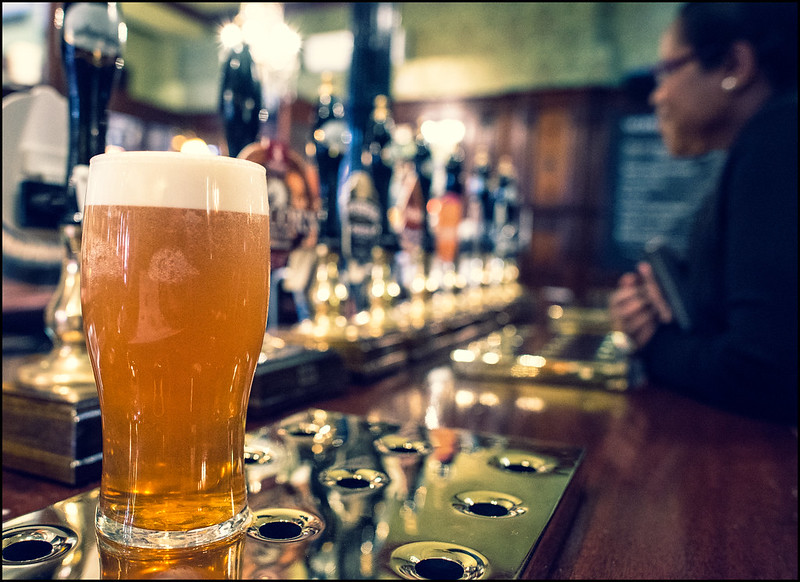Politics
First Welsh poll of year shows ‘Boris Bounce’

PROFESSOR Roger Awan Scully writes: As the UK stands on the verge of leaving the European Union, voters are currently rewarding the man who has led them to this point, Prime Minister Boris Johnson. His Conservative Party is at historic levels of support in Wales, and potentially on course for a major breakthrough at the next devolved election. There are the key messages to emerge from the first Welsh Political Barometer poll of 2020, the first since the general election.
Our new poll, as is typically the case, asked about voting intentions for both Westminster and the National Assembly. For the first time, though, and in light of the recent legislation that has given 16 and 17-year-olds the right to vote in devolved elections in Wales, our sample included a representative number from that age group; they are not included in the vote intention estimates for a general election discussed below, but they are included in the estimates for the Assembly.
First, Westminster. After the strong Conservative performance in December and the further boost they have had in post-election polls conducted across Britain, it is no surprise to see the Tories doing well in our latest poll. Here are the numbers (with changes on our last pre-election Barometer poll, conducted in early December, in brackets):
Conservatives: 41% (+4)
Labour: 36% (-4)
Plaid Cymru: 13% (+3)
Liberal Democrats: 5% (-1)
Brexit Party: 3% (-2)
Greens: 2% (+1)
Others: 1 (no change)
These are historically good figures for the Conservatives in Wales. Their 41 percent support equals the highest rating they have obtained in general election voting intention this century. Labour, by contrast, see their support slip since the general election. Plaid Cymru will be reasonably pleased with a modest rise in their support; all other parties, however, are at very low levels of support.
What might such support levels for the parties mean in terms of parliamentary seats? Using the standard method, of projecting the swings since the last general election indicated by this poll uniformly across Wales, gives us the following outcome in terms of seats (with projected changes from the December result in brackets):
Labour: 18 (-4)
Conservatives: 18 (+4)
Plaid Cymru: 4 (no change)
In short, this poll projects the Conservative to retain all six seats that they gained from Labour at the general election, and on top of that to gain four more ones: Alyn and Deeside, Gower, Newport East and Newport West. All other seats are projected to be won by the party that was victorious in December.
But it is not only changes at Westminster that are suggested by our new poll.
As well as Westminster, we also asked once again about voting intentions for both the constituency and the regional ballots in a devolved election. Here are the figures for the constituency ballot (with shifts in support since our December Barometer poll once again in brackets):
Conservatives: 35% (+4)
Labour: 33% (no change)
Plaid Cymru: 19% (+1)
Liberal Democrats: 5% (-2)
Brexit Party: 4% (-3)
Greens: 3% (no change)
Others: 1% (no change)
These numbers (which include figures for 16 and 17-year-old voters, something that marginally reduces the Conservative lead) show that the current post-election boost to Conservative fortunes is not just confined to Westminster. The 35 percent support reported for the Conservatives is actually their highest ever reported vote intention for the constituency vote in an Assembly election. If we again assume uniform national swings since the last National Assembly election our new Barometer poll projects the Tories to gain eight constituency seats from Labour: these are (in order of current marginality) the Vale of Glamorgan, the Vale of Clwyd, Gower, Wrexham, Cardiff North, Clwyd South, Newport West, and Delyn). There are no other projected constituency seat changes.
For the regional list vote, the new Barometer poll produced the following results (with changes since our December poll once again in brackets):
Conservatives: 32% (+4)
Labour: 32% (no change)
Plaid Cymru: 19% (no change)
Liberal Democrats: 5% (-1)
Greens: 3% (-1)
Brexit Party: 3% (-4)
Others: 5% (+1)
These regional vote figures once more have the Welsh Conservatives equalling their best-ever showing, from early May 2017. Allowing for the constituency results already projected, and once more assuming uniform national swings since 2016, our new poll projects the following overall results for the Assembly’s regional list seats:
Regions:
North Wales: 3 Labour, 1 Plaid
Mid and West Wales: 2 Labour, 2 Conservative
South Wales West: 2 Conservative, 2 Plaid
South Wales Central: 2 Conservative, 2 Plaid
South Wales East: 2 Conservative, 2 Plaid
These figures therefore generate the following overall projected result for the National Assembly:
Labour: 24 seats (19 constituency, 5 regional)
Conservatives: 22 seats (14 constituency, 8 regional)
Plaid Cymru: 13 seats (6 constituencies, 7 regional)
Liberal Democrats: 1 seat (1 constituency)
Since the inaugural election to the National Assembly in 1999, Labour has always much been the largest party in the chamber. Our new poll indicates that, around fifteen months from the next devolved election in Wales, we are currently on course for a rather different type of politics in what will soon to be known as Senedd Cymru/the Welsh Parliament.
Overall, our latest Welsh Political Barometer poll suggests that these are good times in which to be a Welsh Conservative. Indeed, those times have never been better: on all three vote intention measures, the party is equalling or exceeding the best ratings they have ever scored before. But if nothing else, the last few years in politics should have taught us to take nothing for granted. Last May the Welsh Tories scored only 6.5 percent of the vote in the European elections; now they are buoyant. Within another few months, who knows where things will be?
Crime
Welsh Lib Dems urge ministers to rethink rates relief for struggling pubs and cafés

Calls grow for Welsh Government to match support offered to English venues
THE WELSH LIBERAL DEMOCRATS have urged the Welsh Government to review its business rates policy, warning that scaling back support for pubs and hospitality risks further closures across towns and villages.
Party leader Jane Dodds, who represents Mid and West Wales in the Senedd Cymru, said ministers should act quickly to protect local venues after additional support for pubs and music venues was announced for England by the UK Government.
The measures announced by the Chancellor do not automatically apply in Wales, leaving uncertainty over whether similar help will be introduced here.
Hospitality businesses across Pembrokeshire and Carmarthenshire have already reported rising energy bills, higher wage costs and reduced footfall since the pandemic. From April, current business rates relief is expected to be reduced, a move the Liberal Democrats say could place Welsh firms at a disadvantage compared with competitors over the border.
Dodds said that pubs, cafés and restaurants form “the heart of our communities” and warned that withdrawing relief now would be “a serious mistake”.
She told the Senedd that support “cannot stop at pubs alone” and should extend to the wider hospitality sector, including restaurants and family venues that rely heavily on seasonal trade and tourism.
“When questioned, the First Minister said she needed to examine the details of the English package before committing to anything similar for Wales,” Dodds said. “Without urgent action, we risk losing viable, well-loved businesses that communities simply cannot afford to lose.”
The party is also calling for UK-wide action, including a temporary reduction in VAT for hospitality and tourism, funded by a windfall tax on large banks.
However, Welsh Government sources have previously argued that decisions on rates relief must be balanced against pressures on public finances, with ministers required to prioritise health, education and other frontline services within a fixed budget. They have said any additional support would need to be affordable and targeted.
Industry bodies have echoed concerns about the challenges facing the sector. Trade groups say many independent pubs and cafés continue to operate on tight margins, particularly in rural areas where they serve as community hubs as well as businesses.
Local operators say clarity is now key, with decisions on staffing, stock and opening hours often planned months in advance.
With the next financial year approaching, hospitality owners will be watching closely to see whether Wales mirrors England’s support – or leaves businesses to absorb the extra costs alone.
international news
Mandelson quits Labour over Epstein controversy

Former cabinet minister says stepping down is ‘in best interests of the party’ as questions raised over historic payments
LORD MANDLESON has resigned his membership of the Labour Party, saying he does not want to cause “further embarrassment” following renewed controversy over his past links to convicted sex offender Jeffrey Epstein.
The former cabinet minister and one-time UK ambassador to the United States confirmed his decision in a letter to Labour’s general secretary after fresh documents released by the US Department of Justice appeared to reference him in connection with Epstein’s finances.
The files suggest that three payments of $25,000 — totalling $75,000, about £55,000 at today’s exchange rates — were allegedly made to Peter Mandelson in 2003 and 2004.
Lord Mandelson said he had “no record or recollection” of the transactions and believes the allegations may be false, but intends to investigate the matter himself.
In his resignation letter, he wrote that he felt “regretful and sorry” to be linked again to what he described as the “understandable furore” surrounding Epstein.
He added that stepping down from party membership was the responsible course of action while he reviewed the claims.
“I do not wish to cause further embarrassment to the Labour Party,” he said. “I have dedicated my life to the values and success of the party and believe I am acting in its best interests.”
Ambassador role ended
Lord Mandelson had been appointed the UK’s ambassador to Washington by Prime Minister Keir Starmer in December 2024.
However, he was removed from the post last year after earlier revelations about his past friendship and contact with Epstein, including emails showing communication after the financier’s 2008 conviction.
The latest release of files has also included photographs said to show Lord Mandelson alongside an unidentified woman. He said he could not place the location or circumstances of the images.
There is no suggestion that appearing in the documents or photographs indicates criminal wrongdoing.
‘Deep regret’
Earlier this weekend, Lord Mandelson reiterated his regret for ever having known Epstein and apologised “unequivocally” to the women and girls who suffered abuse.
“I want to repeat my apology to the women and girls whose voices should have been heard long before now,” he said.
Epstein died in prison in 2019 while awaiting trial on sex trafficking charges, but investigations into his network of associates continue to generate political fallout on both sides of the Atlantic.
Labour has not yet issued a detailed statement beyond confirming it had received Lord Mandelson’s resignation.

News
Policing powers stay with Westminster as devolution debate reignites in Wales

THE UK GOVERNMENT has ruled out handing control of policing and criminal justice to Wales, triggering fresh political debate over whether the Senedd should ever take responsibility for law and order.
South Wales Central Conservative MS Andrew RT Davies said ministers were “right” to block further devolution, warning that separating Welsh forces from England would weaken efforts to tackle organised and cross-border crime.
His comments follow an exchange in the House of Commons, where Liz Saville-Roberts pressed the Home Secretary on transferring powers to Cardiff Bay. The Government confirmed it does not believe policing and criminal justice should be devolved.

“Must reflect the reality on the ground”
Mr Davies said proposals from Plaid Cymru and other devolution campaigners ignore how crime and communities operate in practice.
“The Senedd must not be put in charge of policing,” he said.
“Senedd ministers have an appalling track record on law and order. As senior police officers say, reforms must reflect the reality that many Welsh communities look east towards England far more than they do to other parts of Wales.”
Senior officers have echoed that concern.
Amanda Blackman, Chief Constable of North Wales Police, recently said her force area is “very much connected from a criminality perspective” to Merseyside and Cheshire.
“Our population move, if you like, is more east to west, west to east than it is north to south,” she said, pointing to the daily flow of commuters, shoppers and offenders across the border.
Long-running constitutional argument
Wales currently has four territorial forces – Dyfed-Powys, South Wales, Gwent and North Wales – but funding, legislation, prisons and the courts all remain under Westminster control.
Supporters of devolution argue this creates a “jagged” system, where services like health, housing and education are run by the Senedd but justice is not.
Plaid Cymru has repeatedly called for Wales to follow Scotland and Northern Ireland, both of which run their own justice systems.
They say decisions made in Cardiff could better reflect Welsh priorities, invest more in prevention, and link policing with mental health, youth services and social care.
A Plaid source said: “Communities in Wales should not have to rely on London to decide how their streets are policed. Justice should sit alongside the other services that deal with the causes of crime.”
Cost and complexity concerns
But critics warn that splitting away from England could come at a high price.
Establishing a separate legal and prison system would mean new administrative structures, courts oversight, inspection bodies and funding arrangements.
There are also practical questions around serious organised crime, counter-terrorism and specialist units that currently operate across England and Wales.
Former policing leaders have previously cautioned that criminals do not respect borders, and intelligence-sharing could become more complicated if systems diverge.
For rural areas such as Mid and West Wales, including Pembrokeshire, officers often work closely with English counterparts on drugs, county lines and cross-border burglary gangs.
Little appetite for change – for now
With the current Government making clear it has no plans to devolve the powers, the issue appears unlikely to change in the short term.
However, with constitutional reform regularly debated ahead of future elections, policing remains a live political question.
For now, responsibility for law and order stays firmly with Westminster – but the argument over who should control Wales’ justice system looks set to continue.
-

 Health5 days ago
Health5 days agoConsultation reveals lack of public trust in health board
-

 News6 days ago
News6 days agoCaldey still unsafe, survivors warn — despite Abbey’s reform claims
-

 Community5 days ago
Community5 days agoPembrokeshire students speak at national Holocaust Memorial Day event
-

 News6 days ago
News6 days agoKurtz raises Gumfreston flooding in the Senedd as petition deadline nears
-

 Crime7 days ago
Crime7 days agoMan denies murdering brother as jury hears of ‘ferocious attack’ at Morriston flat
-

 Community7 days ago
Community7 days agoStorm Chandra: Morning impacts across Pembrokeshire
-

 Entertainment7 days ago
Entertainment7 days agoRapunzel brings festive magic to Torch Theatre
-

 Education6 days ago
Education6 days agoAttendance concerns at Milford School reflect wider issue raised at the Senedd


























